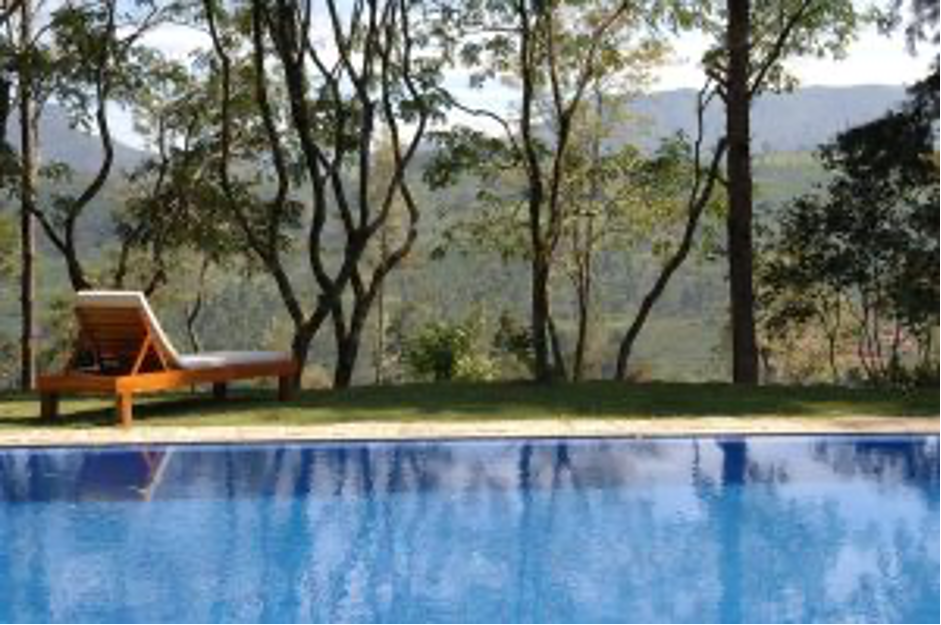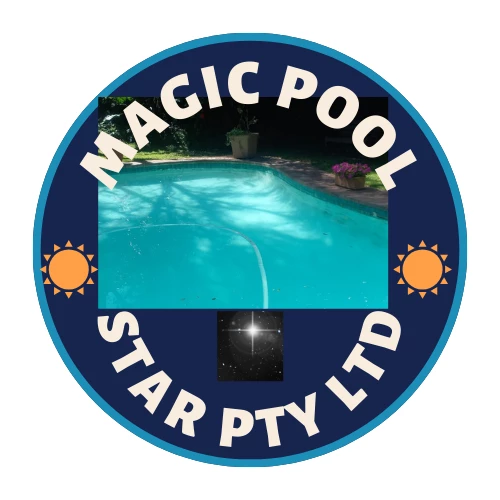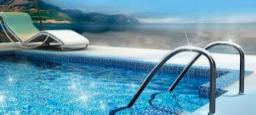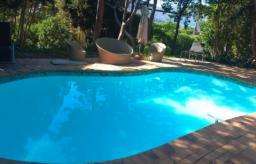DO YOU NEED BUILDING PLANS FOR A SWIMMING POOL IN SOUTH AFRICA?

Let’s be direct and honest enough.
The short answer is Yes. Homeowners need building plans for a swimming pool in South Africa. Building plans are necessary to ensure compliance with safety regulations, zoning laws, and building codes.
They outline important details such as the pool’s dimensions, depth, location, safety features, and construction methods, ensuring that the pool meets all legal and safety standards.
Building a swimming pool can be an exciting addition to any home, offering relaxation, recreation, and a place for family gatherings. However, in South Africa, the process of building a swimming pool involves more than just digging a hole and filling it with water.
It requires careful planning, adherence to regulations, and obtaining necessary permits. One crucial aspect of this process is obtaining building plans for the swimming pool.
Legal Requirements in South Africa
Constructing a swimming pool is not a matter to be taken lightly in South Africa. The National Building Regulations and Building Standards Act stipulates specific requirements for the construction of swimming pools. These regulations cover aspects such as fencing, depth, safety features, and drainage.
Why You Need Swimming Pool Building Plans in South Africa?
Building plans serve as a blueprint for your swimming pool construction project. They are essential for several reasons:
- Legal Compliance: Building plans ensure that your swimming pool complies with national and local building regulations and by-laws. These regulations are in place to ensure safety, environmental protection, and proper land use.
- Safety: Building plans include specifications for the pool’s size, depth, materials, and safety features such as fencing and drainage. These details are crucial for ensuring the safety of users, especially children.
- Quality Control: Plans provide detailed instructions for construction, ensuring that the pool is built to high-quality standards. This helps prevent structural issues and costly repairs in the future.
- Insurance Purposes: Many insurance companies in South Africa require proof of compliance with building regulations before providing coverage for your swimming pool. Having approved building plans can streamline the insurance process and protect your investment.
Conditions for Building a Swimming Pool Without Plans:
While building plans are generally required for swimming pools in South Africa, there are some exceptions. Homeowners can build a swimming pool without plans if:
- Size Limitation: The pool has a surface area of 10 square meters or less. This limitation is to accommodate small, simple pools, such as plunge pools or small decorative ponds.
- Depth Limitation: The pool has a depth of 1.2 meters or less. Shallow pools are considered less complex and may not require formal plans.
- Location: The pool is not located within a designated heritage area or environmentally sensitive zone.
- Compliance with By-Laws: The construction of the pool does not contravene any local municipal by-laws or regulations.
- No Structural Alterations: The pool does not require alterations to existing structures or services, such as water supply or sewage systems.
Consequences of Not Having Swimming Pool Building Plans:
Failing to obtain proper building plans for your swimming pool can have serious consequences:
- Legal Penalties: Building without approved plans is illegal in South Africa and can result in fines, stop-work orders, or even demolition of the pool. Homeowners may be held liable for any violations.
- Safety Risks: Without proper plans, the pool may not meet safety standards, posing risks to users and potentially leading to accidents or injuries.
- Insurance Issues: Insurance companies may deny coverage or delay claims if the pool was built without proper permits and plans. This leaves homeowners financially vulnerable in case of accidents or damages.
- Resale Complications: When selling the property, lack of proper documentation for the pool can complicate the sale process and reduce the property’s value.
- Environmental Impact: Improperly constructed pools can cause environmental damage, such as water wastage or contamination, affecting both the property and surrounding areas.
Why You Should Never Attempt DIY Pool Construction?
While DIY projects can be tempting to save costs, they often lack the expertise and resources necessary for proper pool construction. Professional plans ensure that the pool is built correctly the first time, reducing the risk of mistakes, accidents, and costly repairs down the line.
Common Mistakes to Avoid When Building a Swimming Pool in South Africa
One of the most significant benefits of having building plans is the avoidance of common mistakes. These include improper drainage, inadequate support, or incorrect depth calculations. Each mistake can lead to safety hazards, structural issues, or regulatory non-compliance.
Why You Should Always Hire Professionals?
Hiring professionals ensures that the pool is designed and built to the highest standards. Architects and engineers have the expertise to create a pool that not only meets legal requirements but also suits the property and its surroundings. Attempting DIY or hiring unqualified individuals can result in subpar workmanship, legal issues, and safety hazards.
Do You Need Plans for a Splash Pool?
Yes, you generally need plans for a splash pool in South Africa.
According to the National Building Regulations and Building Standards Act of South Africa (Act 103 of 1977), any construction work, including the erection of a splash pool, requires approval from the local municipality. This approval process typically involves submitting building plans for review and obtaining a building permit before commencing construction.
Additionally, various municipal by-laws and regulations across South Africa stipulate that all swimming pools, regardless of size or purpose, must comply with safety and environmental standards. These standards often include requirements for fencing, drainage, and safety features, which are detailed in building plans.
While the requirements for building plans varies depending on the local municipality, the truth is, splash pools typically require some level of planning and approval.
It’s always advisable to check with your local authorities to confirm the specific regulations and requirements for splash pools in your area.
Why Should Urban Residents Opt for Splash Pools in South Africa?
It’s no secret that space is a unique challenge for most people living in urban areas in South Africa.Most of the yards have limited spaces,making it impossible to install a traditional swimming pool that requires a sizeable amount of land.
With limited yard space, water restrictions, and the desire for affordable yet enjoyable outdoor living amenities, a splash pool isn’t a choice but the convenient option for most urban residents in South Africa.
Introduction to Splash Pools
Splash pools, also known as splash pads, are shallow pools designed for wading and splashing rather than swimming. They provide a refreshing and fun way to cool off during hot weather without the need for a large backyard or extensive water usage.
Reasons Urban Residents Should Opt for Splash Pools
1. Space Efficiency
Our urban areas in South Africa have limited outdoor space, with small yards or even just balconies or rooftops available for recreational use. Splash pools are space-efficient, requiring minimal room for installation. Even in the smallest of spaces, such as courtyards or balconies, urban residents can enjoy the benefits of a splash pool.
2. Water Conservation
Water scarcity is a significant concern in many of our urban areas in South Africa. Traditional swimming pools require a large volume of water to fill and maintain, making them impractical for water-conscious urban residents. Splash pools, with their shallow depth and smaller size, use significantly less water, making them a more sustainable choice in regions facing water restrictions.
3. Affordability
The cost of living in our urban areas keeps on increasing, leaving little room in the budget for luxury items like swimming pools. Splash pools are much more affordable than traditional pools, both in terms of initial installation costs and ongoing maintenance. This makes them accessible to a broader range of urban residents, including those on a tight budget.
4. Ease of Installation and Maintenance
Urban residents in South Africa often lead busy lifestyles, leaving them with limited time for home improvement projects and maintenance tasks. Splash pools are relatively easy to install and require minimal ongoing maintenance compared to traditional pools. Many models come in kit form, allowing urban residents to set them up themselves with minimal hassle.
5. Family-Friendly Entertainment
Despite the hustle and bustle of urban life, families still crave opportunities for quality time and outdoor fun. Splash pools offer a safe and enjoyable way for urban families to bond and cool off together, right in the comfort of their own homes. They provide a safe environment for children to play and learn water safety skills, promoting family togetherness and outdoor recreation.
6. Community Engagement
In urban environments where public parks and recreational facilities are limited, splash pools serves as a focal point for community engagement. They provide a space for neighbors to gather and socialize, fostering a sense of community and belonging in densely populated urban areas.
For urban residents in South Africa, splash pools offer an ideal solution to the challenges of limited space, water conservation, affordability, and busy lifestyles. With their compact size, water-wise design, and family-friendly nature, splash pools provide urban dwellers with a convenient and enjoyable way to stay cool and have fun outdoors, right in the heart of the city.
Conclusion
The decision to build a swimming pool in South Africa is not one to be taken lightly. From legal requirements to safety considerations, it’s clear that having proper building plans is crucial for a successful and hassle-free project.
South African regulations regarding swimming pool construction are stringent, aiming to prevent accidents and ensure safety. Adhering to these regulations is not only a legal requirement but also a moral responsibility to protect those who use the pool.
Building plans are the blueprint for a safe and well-constructed pool. They outline essential safety features, structural requirements, and environmental considerations. Without these plans, the risk of accidents, structural issues, and legal consequences significantly increases.
While it may be tempting to skip the hassle of obtaining building plans, doing so is a risky endeavor. Building a pool without plans is not only illegal but also dangerous. It can lead to accidents, fines, and even legal orders to dismantle the pool.
The consequences of neglecting building plans can be severe. From legal repercussions to safety hazards, the risks far outweigh any perceived benefits. Not only can it result in financial loss, but it can also jeopardize the safety of family and friends.
Hiring professionals, including architects, engineers, and experienced pool builders, is the best way to ensure a successful pool project. They have the expertise to design and construct a pool that meets legal requirements, safety standards, and aesthetic preferences.
Even for smaller projects like splash pools, having proper building plans is essential. While splash pools may seem simpler, they still require careful planning to ensure safety and structural integrity.
Urban residents in South Africa can benefit greatly from splash pools, especially in areas with limited space. Splash pools offer a refreshing escape from the heat and can add value to urban properties without taking up much space.
In essence, building a swimming pool in South Africa without proper plans is a risky venture. By investing in professional building plans and hiring experienced professionals, homeowners can enjoy their pool with peace of mind, knowing that it’s safe, legal, and built to last.


